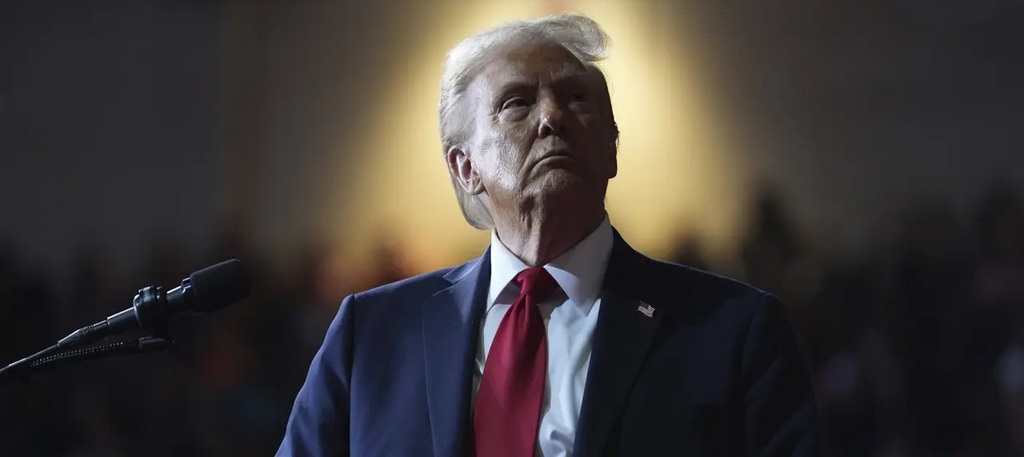The Rise of Trump and Republican Dominance in the US Government
The recent election results in the United States have sent shockwaves across the nation, with Donald Trump emerging victorious in a landslide victory. The power dynamics in the country seem to be shifting dramatically, paving the way for a potential Trump-dominated government.
Trump Sweeps Swing States and Secures Electoral College Victory
In a stunning turn of events, all swing states have swung in favor of Donald Trump, solidifying his hold on the electoral college. Arizona, a key battleground state, also voted in favor of the Republican candidate, adding to his electoral votes tally. With 312 electoral votes in his favor, Trump has left his opponent, Kamala Harris, trailing behind with 226 votes.
The nail-biting race in seven swing states, including Pennsylvania, Michigan, Wisconsin, North Carolina, Georgia, Nevada, and Arizona, ended in Trump’s favor, marking a significant shift from the 2016 election results where these states predominantly supported the Democratic candidate, Joe Biden.
Republican Ascendancy in the House of Representatives
Simultaneous to the presidential election, the Republicans have been making significant gains in the House of Representatives. With 213 seats in their possession, the Republicans are within arm’s reach of a majority, with the Democrats securing 205 seats. If the Republicans clinch the majority in the House, Trump’s path to governance without opposition from Congress seems all but assured.
The upcoming days will reveal the final outcome of this historic race for power in the House, potentially heralding a new era of Republican dominance in the legislative branch.
Triumph in the Senate and Implications for Governance
In a separate victory, the Republicans have already secured the majority in the Senate, dealing a major blow to the Democrats who previously held the upper hand in this chamber. With both the Senate and potentially the House under Republican control, Trump’s ability to govern without hindrances from Congress appears increasingly probable.
As Trump prepares to assume office once again, a whirlwind of possibilities and challenges awaits him on the political horizon. The ramifications of this seismic shift in power dynamics will reverberate across the nation and beyond.
Biden’s Meet with Trump and a Symbolic Gesture of Transition
In a symbolic gesture of transition, the victorious Donald Trump is set to meet with the incumbent Democratic president, Joe Biden. The meeting, scheduled to take place in the Oval Office next week, signifies a rare moment of direct interaction between the two political rivals.
This meeting follows a customary tradition in the United States, where the incoming president meets with the outgoing president to facilitate a smooth transition of power. Despite past differences and animosities, both Trump and Biden seem poised to uphold this tradition and demonstrate a peaceful transfer of power.
Speculations on Trump’s Cabinet and Projected Government Team
Amidst the unfolding political drama, speculations run rampant about Trump’s prospective cabinet members and government team. While only his White House chief of staff, Susie Wiles, has been officially named thus far, rumors and conjectures abound about other key positions.
Surprisingly, Trump has ruled out the involvement of prominent figures such as former Secretary of State Mike Pompeo and ex-UN ambassador Nikki Haley in his new team. The decision to exclude these seasoned political veterans hints at potential strategic shifts and recalibrations within Trump’s inner circle.
Regional Resistance and Challenges Ahead
Despite Trump’s sweeping victories and looming dominance in the federal government, challenges and resistance loom on the horizon, particularly from Democratic-governed states. Leaders from states like California and Illinois have voiced their concerns about potential policy reversals and restrictive measures under a Trump-led administration.
Governors and officials from these states are gearing up to defend their progressive policies on issues such as abortion rights and climate change, vowing to resist any attempts to undermine their autonomy. The stage seems set for a showdown between the federal government and states advocating for greater sovereignty and self-governance.
In the coming days and weeks, the political landscape in the United States is poised for significant transformations and upheavals as Trump’s victory sets the stage for a new chapter in American politics. The dynamics of power, governance, and resistance will intertwine in a complex dance of influence and opposition, shaping the trajectory of the nation in unforeseen ways.

